31 Days to Waking Up Happy for Life
Get started on a month of research-backed ways to increase the joy in your life.
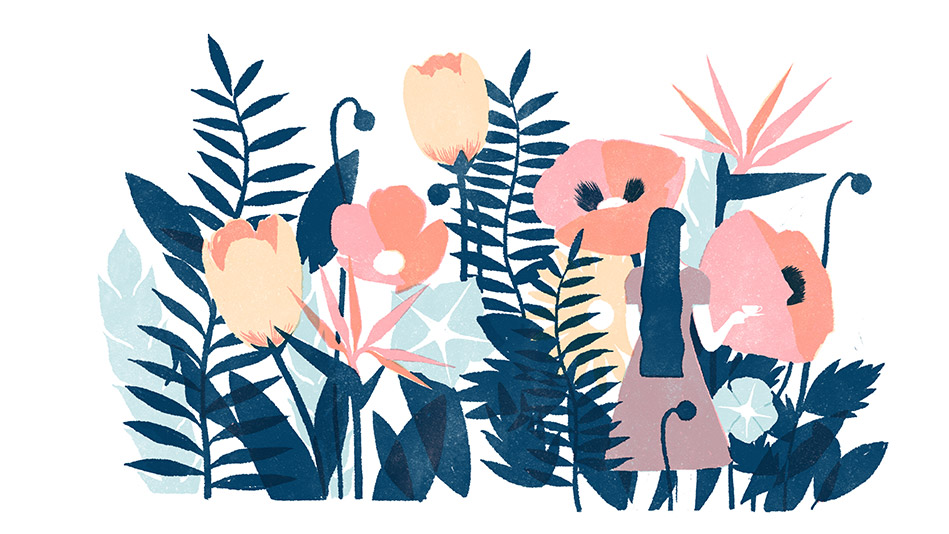
Illustration: Jun Cen
1. Catch Some Zzz's—the Right Way
Turkish researchers found that people who tend to sleep on their right side have mellower dreams, with themes of relief, joy, peace and love. They also report feeling better rested and less dysfunctional during waking hours.
2. Don't Dream in Half-Light
Four weeks of sleeping in a 5-lux glow—the equivalent of nightlights, streetlights, a TV or computer screen—suppressed levels of the feel-good hormone melatonin and shrank parts of the hippocampus, leading to moodiness and despondency. (Note: Depressive symptoms vanished after two weeks of pitch-dark slumber.)
3. Rethink Your Shower
Researchers theorize that ending your shower with a decrease in water temperature (to about 68°F), and staying under the spray for two to three minutes, may trigger neurotransmitters in the brain that produce a sense of well-being.
4. Have a Little Tulip with Your Coffee
In a study led by Harvard Medical School psychologist Nancy Etcoff, PhD, women who saw flowers when they woke up reported feeling happier (and less anxious) at home, as well as more energetic at work.
5. Soak Up Antidepressant Rays
Step outside for a half hour, or so, if you can. The morning light—especially from 6 a.m. to 9 a.m.—may be more effective in curing the winter blues than late-afternoon or evening light.
6. ...Just Don't Forget One Thing
On the sunniest days, we squint; and squinting can make us angry, explains Daniele Marzoli, PhD, a psychologist at Italy's University of Chieti-Pescara. Since mood and facial muscles are linked, your face signals to your brain that you're irritated (even if you weren't...initially). To make matters worse, the tetchiness flares up almost instantly, explains Dr. Marzoli. Luckily, this one has a simple, fast-acting and potentially elegant remedy: sunglasses.
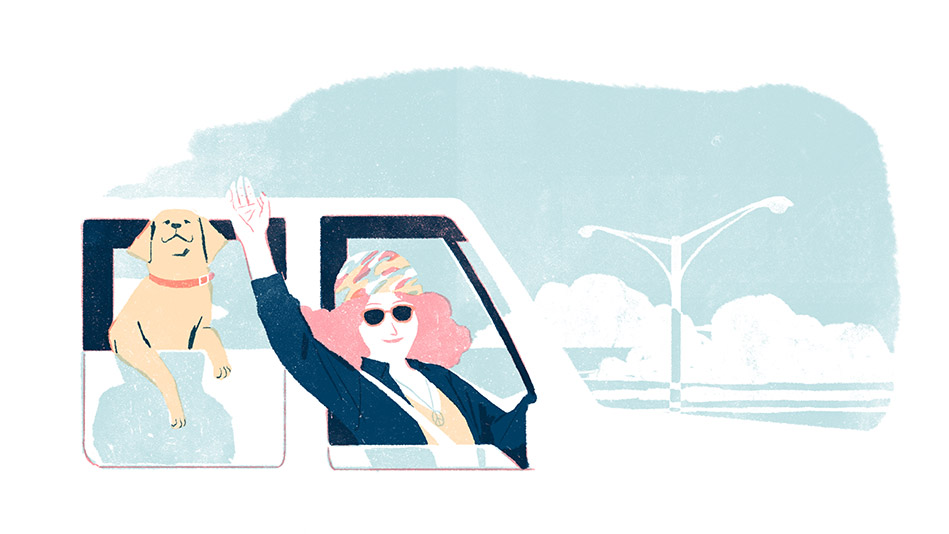
Illustration: Jun Cen
7. Remember to #JustSayHello
It's a simple greeting, but science reveals that social interaction can help us live healthier, happier and longer lives. Join the campaign that demonstrates how a small gesture can make a big difference.
8. Get Your Heart Racing...and His, Too
Schedule an a.m. tryst, and you'll not only feel more vital and alive but also more bonded to your partner for the rest of the day. Testosterone levels are highest in the morning. Having sex then also boosts your levels of the love hormone, oxytocin.
9. Decorate Your Workspace with Help from Picasso
Stoke creativity by introducing hints of blue into your workspace. Researchers at the University of British Columbia's business school found that people who used computers with a blue background came up with more imaginative ideas, possibly because the color is associated with openness and serenity.
10. Snack on These Seeds
A study found that post-grad students whose diets regularly met or exceeded their RDA (recommended dietary allowance) for magnesium (320 milligrams for woman, or roughly half a cup of pumpkin seeds) were less likely to be depressed than students whose diets contained the least amount of magnesium. Plus, the seeds pack in tryptophan, an amino acid that aids the production of serotonin, a mood-regulating neurotransmitter.
11. ...But Definitely Not These Foods
No matter what's irking you—your partner's tap-tap-tapping foot, a snarky comment, a printer jam—the wrong type of popcorn may play a role in turning annoyance into full-blown rage. Other culprits can include: frozen pizza, crackers, canned frosting, coffee creamer...or anything else that contains high levels of trans-fatty acids (partially hydrogenated oils—see this list).
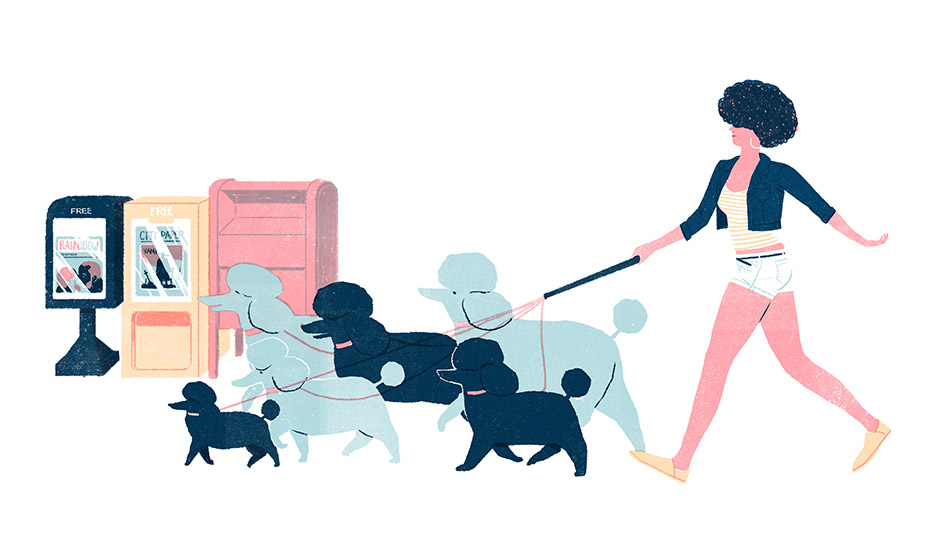
Illustration: Jun Cen
12. Learn How to Forgive
Studies have shown that forgiveness can lower blood pressure and heart rate and reduce depression, anxiety and anger. Oprah always remembers the person who told her the secret to releasing grudges saying, "Forgiveness is letting go of the hope that the past can be changed."
13. Don't Stoop Around
Depression is a slump—literally and figuratively. Erik Peper, PhD, a professor at San Francisco State University, found that bad posture may only strengthen a vicious cycle of sadness and depression. It's another artifact of the brain-body link: We act how we feel...and we feel how we act.
14. Stay in Countdown Mode
The best part about vacation may be...the anticipation. Research finds that the weeks leading up to a break yield even more bliss than the afterglow of one. This may explain why your happiest colleagues plan miniholidays every three to four months (instead of, say, one long vacation in August), giving themselves more escapes to look forward to throughout the year.
15. Remember This Quote
"The bigness of the world is redemption. Despair compresses you into a small space, and a depression is literally a hollow in the ground. To dig deeper into the self, to go underground, is sometimes necessary, but so is the other route of getting out of yourself, into the larger world, into the openness in which you need not clutch your story and your troubles so tightly to your chest." — Rebecca Solnit, The Faraway Nearby
16. Put One Foot in Front of the Other—in a Brand New Way
Researchers found that people who strode down the street (long steps, arms bouncing) for three minutes felt "significantly happier" than those who shuffled (small steps, slumped shoulders, looking down).
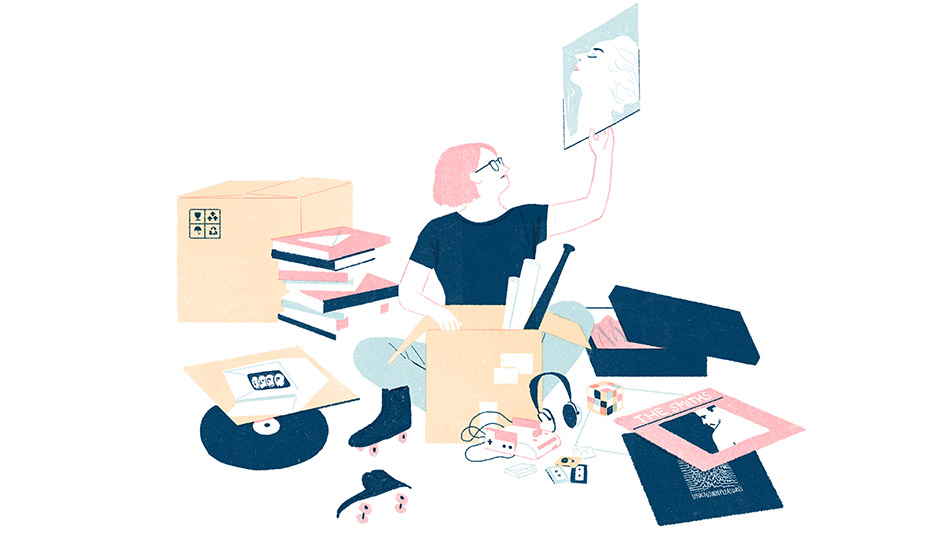
Illustration: Jun Cen
17. Be a Work Altruist
If a junior associate asks for help with her report, what should you say? "Sure." Because—conscious of it or not—offering to lend a hand to others at work actually makes us happier, found a study at the University of Wisconsin-Madison (as long as you're not giving so much time away that you can't complete your own work).
18. Take a Note from Aretha
R-E-S-P-E-C-T may just be your key to living a happy life. In a study at the University of California, Berkeley, researchers found that overall happiness is rooted in how much respect and admiration you have from the your closest friends, co-workers and family.
19. Pack These Foods into Your Diet
One of these edible antidepressants might be all you need to go from hungry and cranky to full and content.
20. Rock Out to Vintage Madonna Records
Note, we said records—not albums, not tracks, not MP3s. In one study at Harvard University, people who were placed in an environment that resembled their youth—with movies, music and memorabilia from the past—experienced marked improvements in their memory, vision, happiness level and overall health.
21. Appreciate a Fuller In-Box
Isn't more work a formula for more stress? Nope—to the contrary, found a Harvard Business School leadership study. More responsibilities meant lower stress-hormone levels—and less anxiety and burnout. Crucially, the additional work must give you a morale boost, not drown you in drudgery.
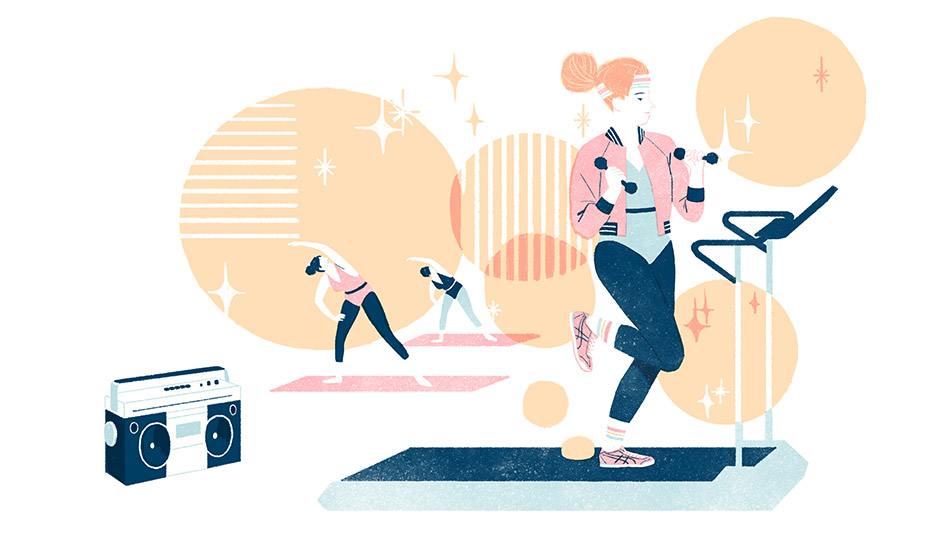
Illustration: Jun Cen
22. Don't Take Your Drink Lite
Aspartame, the artificial sweetener, may kill "friendly" gut flora associated with better moods. It also blocks the mood-moderating chemical serotonin (although effects were not noticed in people who had not had a history of a mood disorder). Together, these findings might help explain the results of a National Institutes of Health study: People who drank four or more cups daily of diet soda/diet iced tea had a 30 percent increased risk of depression compared to nondrinkers (more aspartame, higher risk).
23. Get Down and Give Me 20
You'll likely find that your fitter self is more resilient to slights, pressures and disappointments. Aerobic exercise increases the "fight-or-flight threshold," says John Ratey, MD, in his exercise science book, Spark—by relaxing muscles, boosting mood-moderating neurotransmitters (like serotonin and dopamine) and reducing the body's stress response to the hormone cortisol.
24. During Rush Hour: Pop One of These
What helps a frustrated, worn-out driver (besides vanishing traffic, of course)? Researchers at Wheeling Jesuit University in West Virginia found that pumping peppermint-scented air into the cars of ticked-off commuters helped decrease anxiety and fatigue. Stash a bag of peppermint candies in your glove compartment to help you keep your cool during a hectic commute.
25. Give Your Mind a Short Leash
"A wandering mind is an unhappy mind," wrote Harvard University psychologists Matthew Killingsworth and Daniel Gilbert in their study on mental presence. They found that people are happiest when their minds are in the present moment (yet another reason to meditate)—but that our minds are only in that state about half of each day. The three times we're most likely to be "here" and happy: when exercising, in conversation and (especially) when having sex.
26. Buy Mom Some Cashmere Socks
Researchers at the Harvard Business School, the University of British Columbia and the University of Liège found that purchasing anything for someone else—as long as it's within the very affordable price range of $5 to $20—makes you happier than buying the same item for yourself.
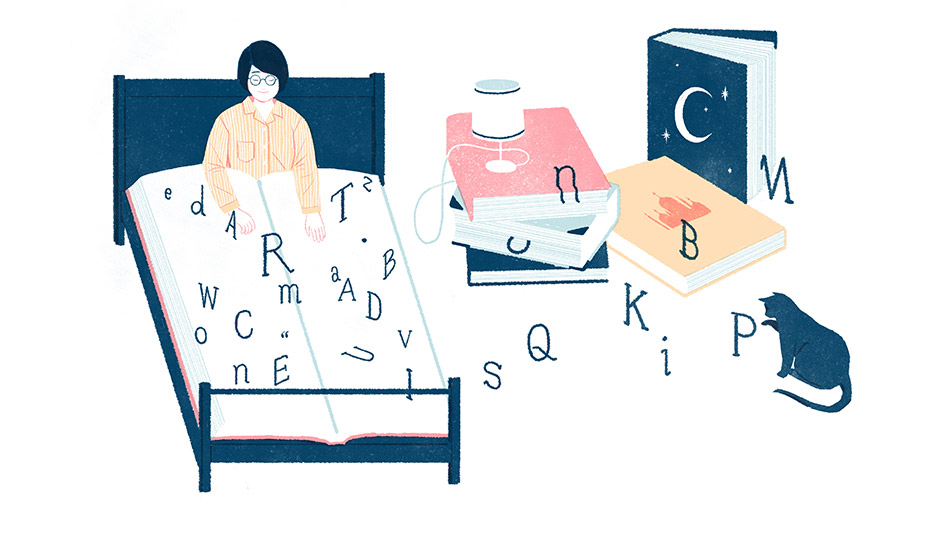
Illustration: Jun Cen
27. Add a Happiness Helper into Your Dinner
Consuming edamame might aid in beating the blues, thanks to the B vitamin folate. (One cup delivers more than 100 percent of your Recommended Dietary Allowances.) In one study, women with the highest folate levels were 63 percent less likely to report significant symptoms of depression than those with the lowest.
28. Find Your Flow
Psychologist Mihaly Csikszentmihalyi, PhD, reminds us of the reason to keep knitting scarves or writing short stories. His research has shown that immersing yourself in an activity (especially one you find pleasurable) can trigger a state called flow. "The more flow you bring into your life," Csikszentmihalyi says, "the happier you'll be."
29. Open One of These Before Bedtime
What do happy people do? Read! But really, really happy people read these books that open their minds—and lives.
30. Don't Go to Sleep After Watching Orphan Black
People shown disturbing images at bedtime had strong reactions both before and after sleeping, found a study published in The Journal of Neuroscience. Staying awake after an upsetting experience neutralizes some of the emotion, the scientists concluded, while going to sleep helps "preserve" the emotional response.
31. Dangle a Week-Carrot
Look, the world of happy moments doesn't have to end just because the workweek must be spent wearing real clothes. Happiness doyenne Gretchen Rubin, creator of the Happiness Project and author of bestsellers Happier at Home and The Happiness Project, says, "Give yourself a reason to anticipate the coming week: Plan lunch with a friend, or a movie outing, or a trip to an office-supply store—or am I the only one who loves to go to office-supply stores?—and when the Sunday blues hit, remind yourself of everything fun that will happen."



